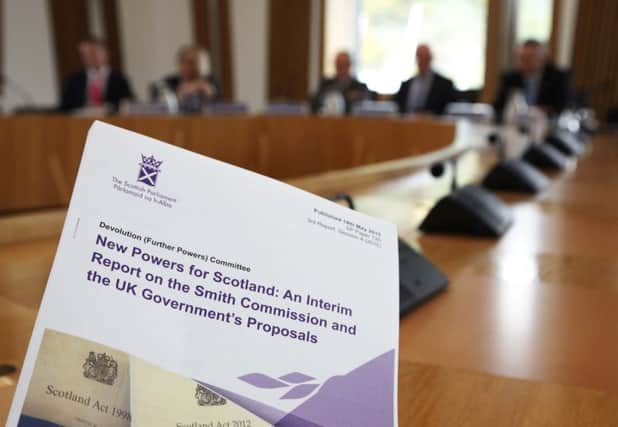Alan Delaney: SNP is going to work on employee rights


Employment law is a hot topic, with the SNP government looking to seize the initiative and position Scotland as a more robust defender of workers’ rights, despite employment law being traditionally reserved to Westminster. Interventions have included the pledge to abolish employment tribunal fees and new statutory guidance on procurement and fair work practices.
How significant will the abolition of employment tribunal fees be?
Advertisement
Hide AdAdvertisement
Hide AdSince the introduction of fees in July 2013, claims lodged across the UK have plummeted by 80 per cent or more. Under the current fees regime, the cost to an individual to bring a single unfair dismissal or discrimination claim is an initial claim fee of £250 and a subsequent fee payable in advance of a hearing of £950. Scrapping fees is highly likely to lead to a substantial increase in the number of tribunal claims being brought in Scotland.
When will the fees be abolished?
This is as yet unclear, but with Clause 33 of the Scotland Bill set to devolve the administration of Employment Tribunals north of the Border, the Scottish Government has launched its legislative programme stating its intention to abolish fees.
Are other areas of employment law impacted by the Scotland Bill?
Clause 32 devolves power to the Scottish Government to impose further equal opportunity obligations on public authorities in Scotland, so long as these are not in conflict with the Equality Act 2010. This opens the door to enhancing discrimination protection for employees of public bodies in Scotland, with the most recent amendments making clear there will be power to set gender quotas on public boards. The Scottish Government is consulting over proposals to introduce diversity succession planning for board appointments to listed public authorities, and also to lower the reporting threshold on gender pay gap and equal pay reporting from authorities with 150 employees to those with just 20.
What does the new statutory guidance on procurement and fair work practices do?
This arises from the Scottish Government using existing devolved powers. The new guidance applies to regulated procurement commencing on or after 1 November and includes sample “invitation to tender” questions which will allow public authorities to evaluate whether contractors operate “fair work practices”. The guidance gives examples, including paying the living wage, no unnecessary zero-hour contracts and giving workers an active voice in the workplace. While paying the living wage cannot be made a mandatory requirement, the guidance suggests failure to do so might be seen as a strong negative indicator.
What about exempting Scotland from the new Trade Union Bill?
The UK government’s controversial new bill introduces restrictions on trade union ballots and industrial action. Fair work, Skills and training secretary Roseanna Cunningham has written to the responsible UK minister arguing the move would undermine the effective engagement of Scottish trade unions and calling for Scotland to be exempted. It seems unlikely that the requested exemption for Scotland will be agreed, given it is a reserved matter.
Advertisement
Hide AdAdvertisement
Hide AdMs Cunningham’s letter will, however, undoubtedly increase pressure on the UK government to make good its commitment to maximise the powers devolved to Scotland. It may well be seen as a good opportunity to test the broader and more important question of where responsibility for setting employment law should lie.
• Alan Delaney is a director in the Employment and Pensions team at Maclay Murray & Spens LLP. www.mms.co.uk